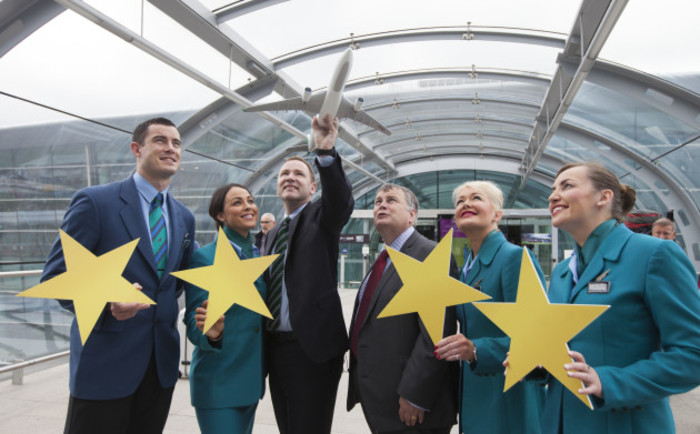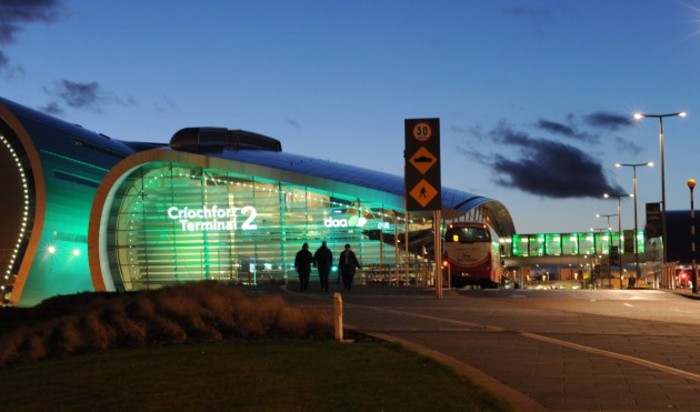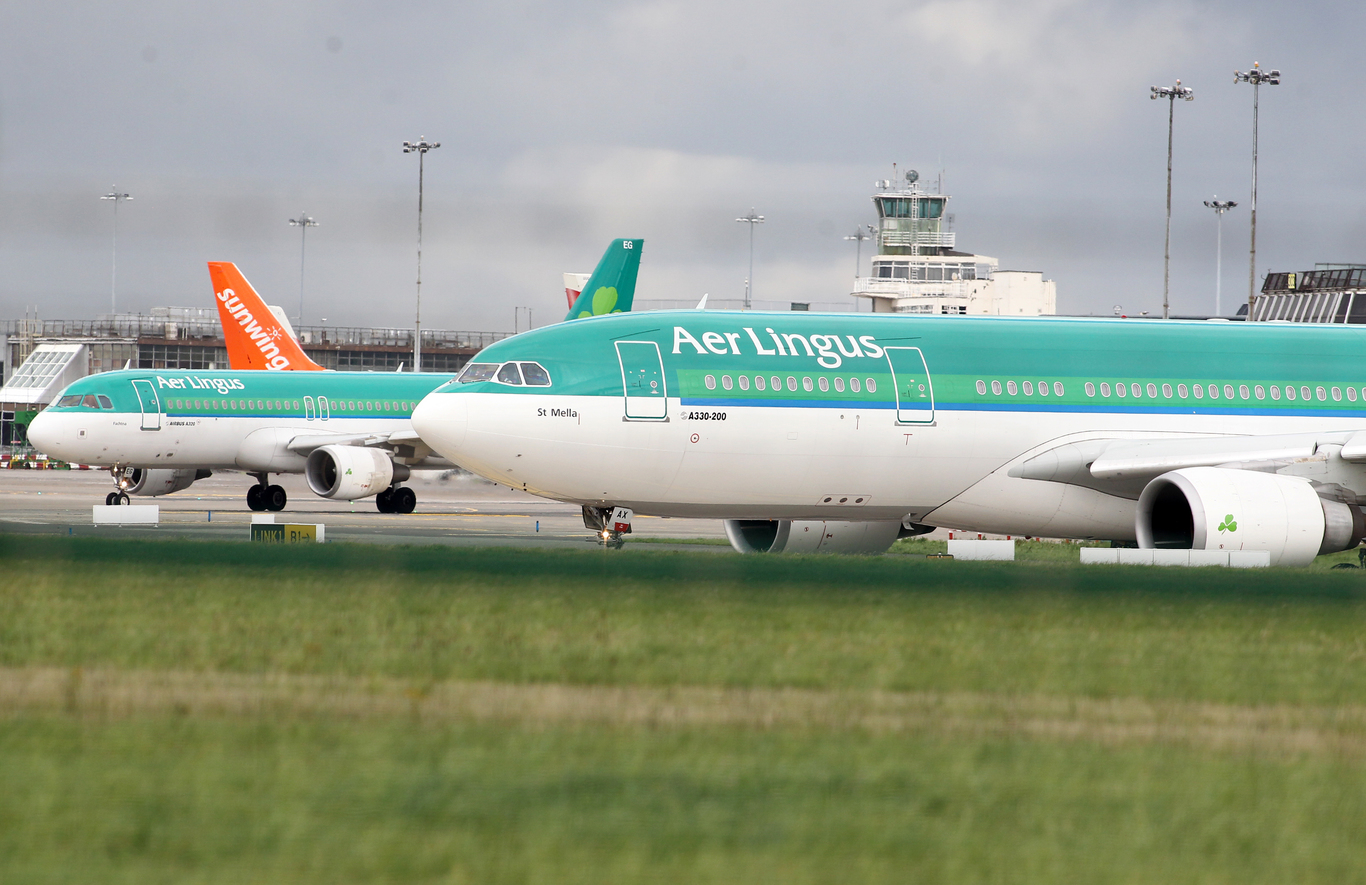Relations between Aer Lingus and Dublin Airport have 'soured immensely'
The airline says it may redeploy some planes in the future if its infrastructure needs aren’t met.
THE CHIEF OPERATIONS Officer at Aer Lingus says that relations with the semi-state company that runs Dublin Airport have “soured immensely” over upgrades to the hub.
The former national carrier has previously signalled its dissatisfaction over what it called “unacceptable infrastructural deficits” at the airport.
In July, Willie Walsh – the chief executive of IAG, the company that owns Aer Lingus and British Airways – said the group is unhappy with how Dublin Airport has handled its “infrastructural bottlenecks”.
Aer Lingus CEO Stephen Kavanagh has made similar comments, claiming that Dublin Airport is turning away business because its existing infrastructure can’t handle extra traffic.
The airline has claimed that baggage systems, parking stands and taxiways are not up to scratch.
Speaking to reporters in Dublin yesterday, chief operating officer Mike Rutter said that the standoff had seen relations between the two sides deteriorate.
“Relations (have) soured immensely between ourselves and Dublin Airport over the past few months,” he said.
“(This happened) when it became apparent that the ambition we have to prosecute an agenda of growth into Dublin has not yet been matched.”
He added that Aer Lingus would continue to meet with new DAA chief executive Dalton Philips in order to repair the relationship.
 Mike Rutter, third from right
Mike Rutter, third from right
Investment
Aer Lingus is due to spend around €1 billion on eight new aircraft earmarked for Dublin, however Rutter said the airline would have to reconsider where the planes would be stationed in the long-term if its infrastructure needs aren’t met.
“We genuinely believe we can overcome the infrastructure issues. I’m a great believer that you need to show the ambition of your business,” he said.
“You hope that others can catch up with you, can work with you and can deliver. If that ambition is met, it’s absolutely fine. If not, then in the long-term we will have to consider where aircraft get deployed.
“The management team here in Dublin have one ambition that (the new aircraft) are deployed here and used for the good of the Irish economy.”
The Aer Lingus stance comes at a time of expansion for the airline, but the infrastructure demands run counter to its former stance.
At the time of the last Commision for Aviation Regulation review of capacity at Dublin Airport, Aer Lingus said that no investment was needed - nor does the submission mention baggage, gates or taxiways.
The airline’s submission, for the five-year investment cycle to 2019, instead says current infrastructure could be better-utilised and argued that DAA’s capital expenditure plans were too ambitious.
Since that submission was made, Aer Lingus has been taken over by airline group IAG and transformed its business, while the amount of traffic passing through Dublin Airport has increased dramatically with the recovering economy.
A Dublin Airport spokesman said: “Dublin Airport is managed in the best interests of the Irish economy to grow connectivity and to meet the needs of all of its airline customers rather than just one.
“Dublin Airport is currently investing about €100 million per year to upgrade its facilities and we will shortly present proposals for an enhanced an investment programme to our airline customers for consultation.
“As part of our investment in new capacity, a new boarding gate area will open later this year, which will be used by Aer Lingus flights among others.”
Terminal velocity
 Terminal 2 at Dublin Airport
Terminal 2 at Dublin Airport
Rutter said one solution to Aer Lingus’s complaints would be for the airline to have its own terminal at Dublin Airport.
Last year the Department of Transport announced that it has published a request for tenders to assess pros and cons of different funding models for a third terminal at the airport.
Rutter said that Aer Lingus could be interesting in buying Terminal 2 at the airport if it was up for sale.
“Aer Lingus would like to own or be the anchor tenant of Terminal 2 and being the key player in that marketplace,” he said.
“Our genuine desire is to be a major contributor to the development of Terminal 2 and for it to become a proper hub terminal that allows Ryanair do what they need to do in Terminal 1 and us do what we need to do in Terminal 2.
“If the solution to that equation is to create a third terminal, managed by whoever, and take some of the noise out of Terminal 2, we wouldn’t be against that. We’re willing to explore all options with DAA.”
Written by Paul Hosford and posted on TheJournal.ie. Additional reporting Peter Bodkin.






